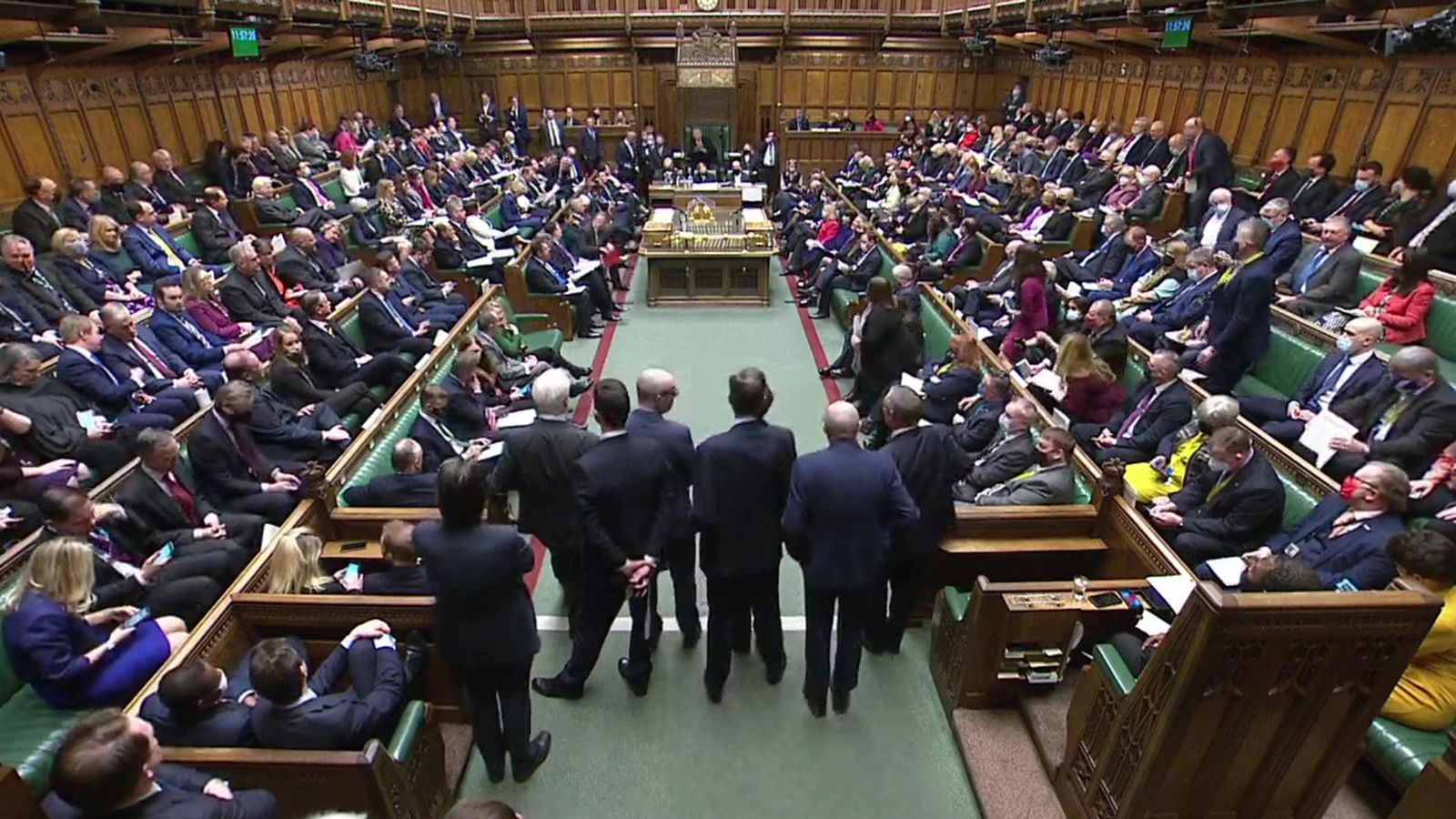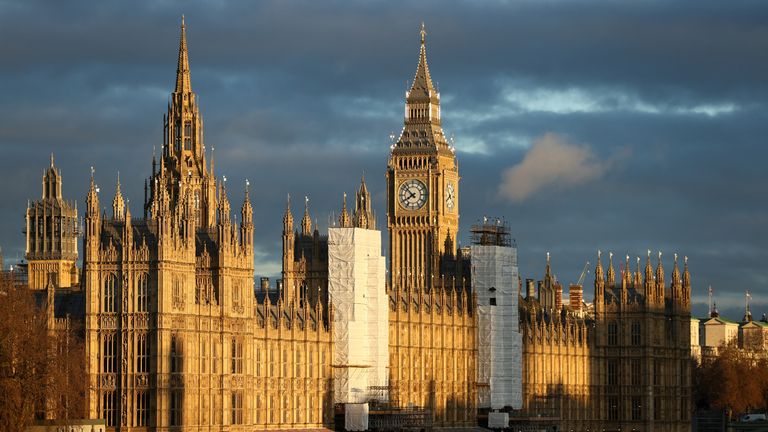MPs will get a pay rise of more than £2,000 this year, the parliamentary pay watchdog has announced.
MPs will receive £2,212 more for the year from 1 April, increasing their pay by 2.7% from £81,932 to £84,144, the Independent Parliamentary Standards Authority (IPSA) announced.
IPSA sets MPs’ pay independently of parliament and government.
It said the pay rise is the same as the average increase in pay for public sector employees last year.
MPs’ pay has remained unchanged for the past two years due to the pandemic and both Boris Johnson and Sir Keir Starmer had urged IPSA to not increase it for the upcoming year.
Richard Lloyd, IPSA’s Chair, said: “MPs play a vital role in our democracy and this is reflected in their pay.
“It is right that MPs are paid fairly for the responsibility and the unseen work they do helping their constituents, which dramatically increased last year.”
Mr Johnson in January urged IPSA to show “restraint” in setting MPs’ pay and suggested salaries should remain the same as he cited the cost-of-living pressures being felt by families across the country.
At the time, the PM’s official spokesman urged IPSA not to recommend a large rise.
Sir Keir also said MPs should not receive a pay rise, saying all parliamentarians should be saying “that we don’t need that pay rise and it shouldn’t go ahead” this year too.
Over the pandemic, MPs were able to access more cash to run their offices from home, as well as having their staff work from home.
A few days before the March 2020 lockdown, IPSA told MPs they would get a £10,000 increase to their office costs budget as well as an increased credit limit on their payment cards from £4,000 to £10,000.
At the time, IPSA said: “Most MPs’ staff moved at very short notice from being based in Westminster, or in a constituency office, to working from home.
“Many staff were not set up for home working, nor for supporting constituents remotely.
“This additional funding is to help them make that transition, while they deal with a huge increase in workload from distressed constituents as a result of coronavirus issues.”

